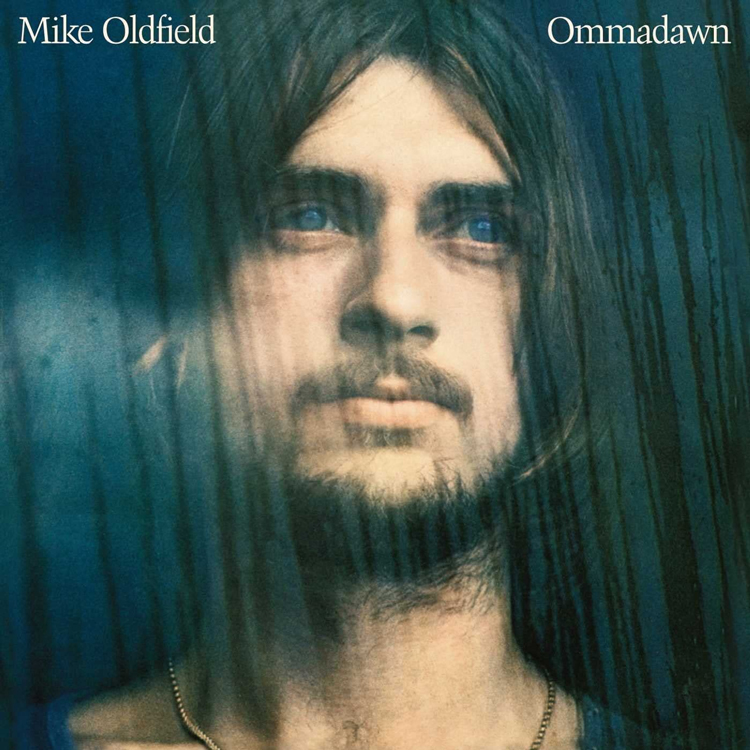Michael Gordon Oldfield was born on May 15, 1953 in Reading, Berkshire, England. He’s a self-taught multi-instrumentalist, composer and producer. His first musical project was in the folk duo Sallyangie that he formed with his sister Sally. After a short period in a group called Barefeet, Oldfield moved into more progressive music terrain with a band called The Whole World. The group included David Bedford, Lol Coxhill, and Soft Machine members Kevin Ayers and Robert Wyatt. They came up with a mix of folk, rock, jazz, and avant-garde influences.
Mike Oldfield made some demos of a 50-minute instrumental suite called “Tubular Bells.” He visited several record labels, who rejected the project claiming that it had no commercial potential. Eventually, he was the first artist signed by a brand new label called Virgin Records, created by Richard Branson in the early 1970s. The debut release for both Oldfield and Virgin Records was “Tubular Bells,” an album that went on to sell millions of copies worldwide.
On “Tubular Bells” Mike Oldfield played a wide-range of acoustic and electric musical instruments. It was progressive music that was hard to classify, with elements of progressive rock, classical music, English folk, Celtic and other influences.
The music from “Tubular Bells” had been picked up for use as the recurring theme for William Friedkin’s popular movie “The Exorcist.” Virgin’s American distributor, Atlantic Records, edited “Tubular Bells” into a single. When it was released, the record climbed into Billboard’s Top 10 and experienced explosive sales, setting the foundation for Virgin as a major record company throughout the world.
Originally released in 1974, Hergest Ridge was the follow-up to Tubular Bells. It gave Oldfield his first UK No.1 album, and was actually knocked off the UK top spot by Tubular Bells itself. It is another lengthy suite, reflecting the glory of the countryside Oldfield had secluded himself in following his early global success. Hergest Ridge is on the English-Welsh border near the town of Kington.
Originally released in November 1975, Ommadawn, remains one of Oldfield’s favorite works. Recorded at his then home at Hergest Ridge, it again took the form of two lengthy suites of music, but here there are added Irish and African influences. Oldfield looked towards composition on traditional instruments. Ommadawn featured folk legends Clodagh Simons and Paddy Moloney as well as African drummers, Jabula.
Both “Ommadawn” and “Hergest Ridge” didn’t sell as well as his first album and were met with critical hostility in the UK (the British pop press was notoriously unfriendly towards progressive music) and went practically unnoticed in the United States.
After the two releases and unenthusiastic reception, Oldfield withdrew to his home in Reading to get away from the pressures of the music industry and to think about the meaning and consequences of his sudden success. During this interval, Virgin released two albums, “The Orchestral Tubular Bells” and “Boxed,” a collection of Oldfield’s albums.
When Oldfield returned to recording, his work showed a new maturity while still exploring new musical forms. From 1975 to 1982, Oldfield released five albums that not only showed his genius for both classical and progressive orchestration, arranging, and composition, but also contained his first proper pop singles and work with outside vocalists. These albums were “Incantations,” “Platinum,” “QE2,” “Five Miles Out,” and “Exposed.”
Incantations, released in November 1978 was Oldfield’s first and only studio double album, featuring four parts of the title track. Oldfield played many of the instruments along with old friends including David Bedford conducting the choir and orchestra, Gong’s Pierre Moerlen on drums and Mike’s sister Sally on vocals.
None of the records had the same effect as “Tubular Bells,” but “Five Miles Out” contained the song “Family Man” that went on to become an international smash when it was covered by Hall and Oates in 1983, and “Exposed” included the hit “Guilty,” Oldfield’s most successful single since “Tubular Bells.” Oldfield also conquered his stage fright and began to tour during this time, at one point bringing 50 musicians on the road with him. The double live album “Exposed” was recorded during a tour in 1979.
Oldfield’s last studio albums before “Islands” were 1983’s “Crises” and 1984’s “Discovery.” Again Oldfield was working in more commercial territory, and the songs “Moonlight Shadow,” “Shadow On The Wall,” and “In High Places,” the last song with vocals by Yes singer Jon Anderson, became international hits.
In 1986, soundtrack fever struck Oldfield again. He scored the Academy Award-winning film “The Killing Fields,” combining the music of East Asia with his own unique musical sensibilities. The record used orchestral music, synthesizers, and vocals to achieve the haunting sounds that make both the soundtrack and the movie so memorable. Virgin in the United States re-released “The Killing Fields” along with “Tubular Bells” and “Hergest Ridge” in early 1987.
In 1988, Mike Oldfield released “Islands.” The first side of the album is instrumental, while the second side contains six rock/pop compositions, showcasing once again the diverse styles of contemporary music that Oldfield can work with so masterfully. The lead-off single is “Magic Touch,” a scaring, inspirational song with magnificent vocals by ex-GTR man Max Bacon. The title track, which was the first single in the UK, features vocals by Bonnie Tyler. Production on “Islands” was handled by former Yes/Asia/Buggles musician Geoff Downes, while Oldfield’s long-time associate Kevin Ayers added vocals to select tracks.
Early in 1987, “Tubular Bells” was re-released by Virgin in the United States as part of an innovative catalog marketing program. It continues to enjoy strong sales, and has renewed the public’s interest in Oldfield.
In 2009, Universal Music released a repackaged and remastered edition of Tubular Bells, a new 2009 stereo mix of the album.
The fourth installment in his catalog reissues, Incantations, was released on July 25, 2011.

